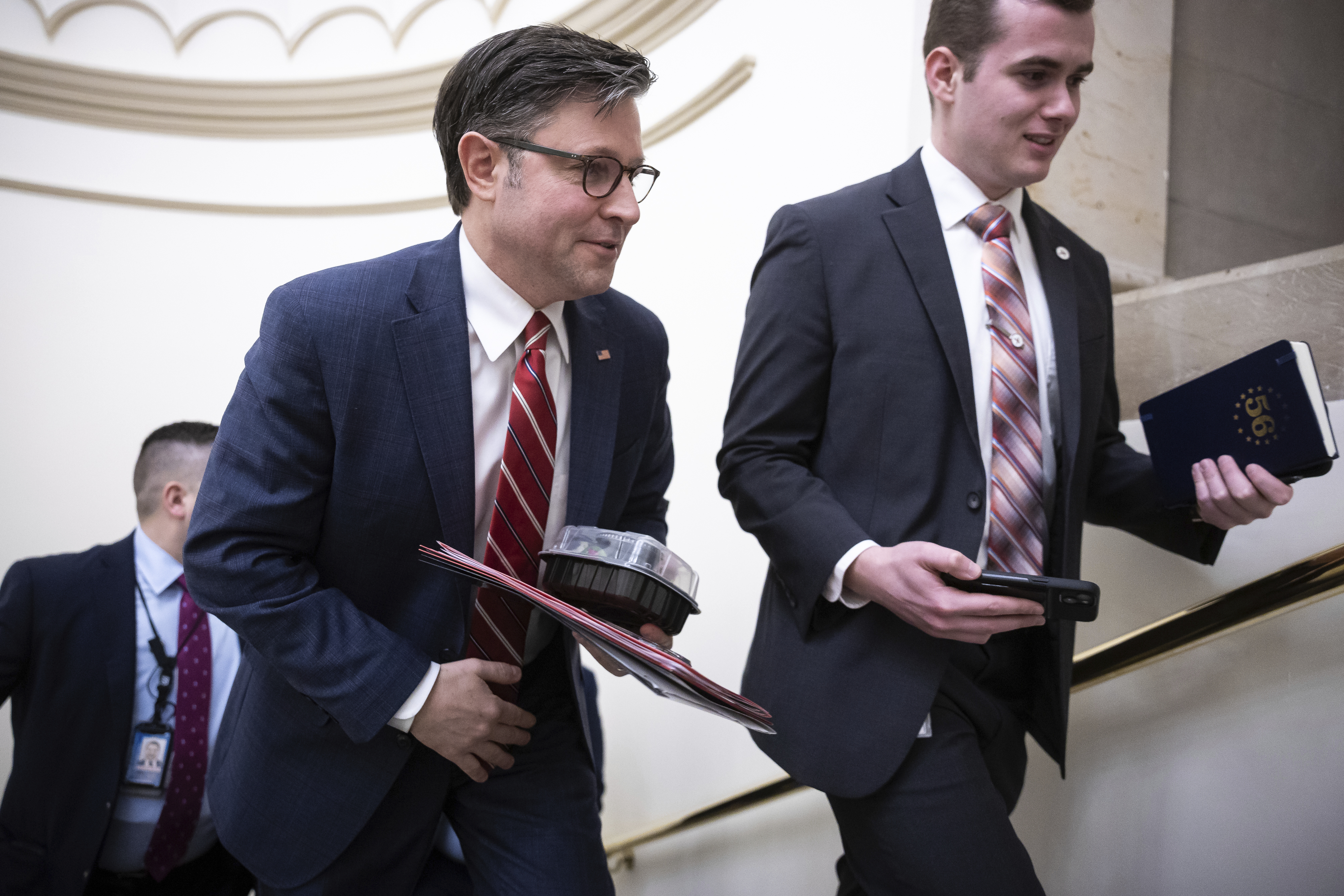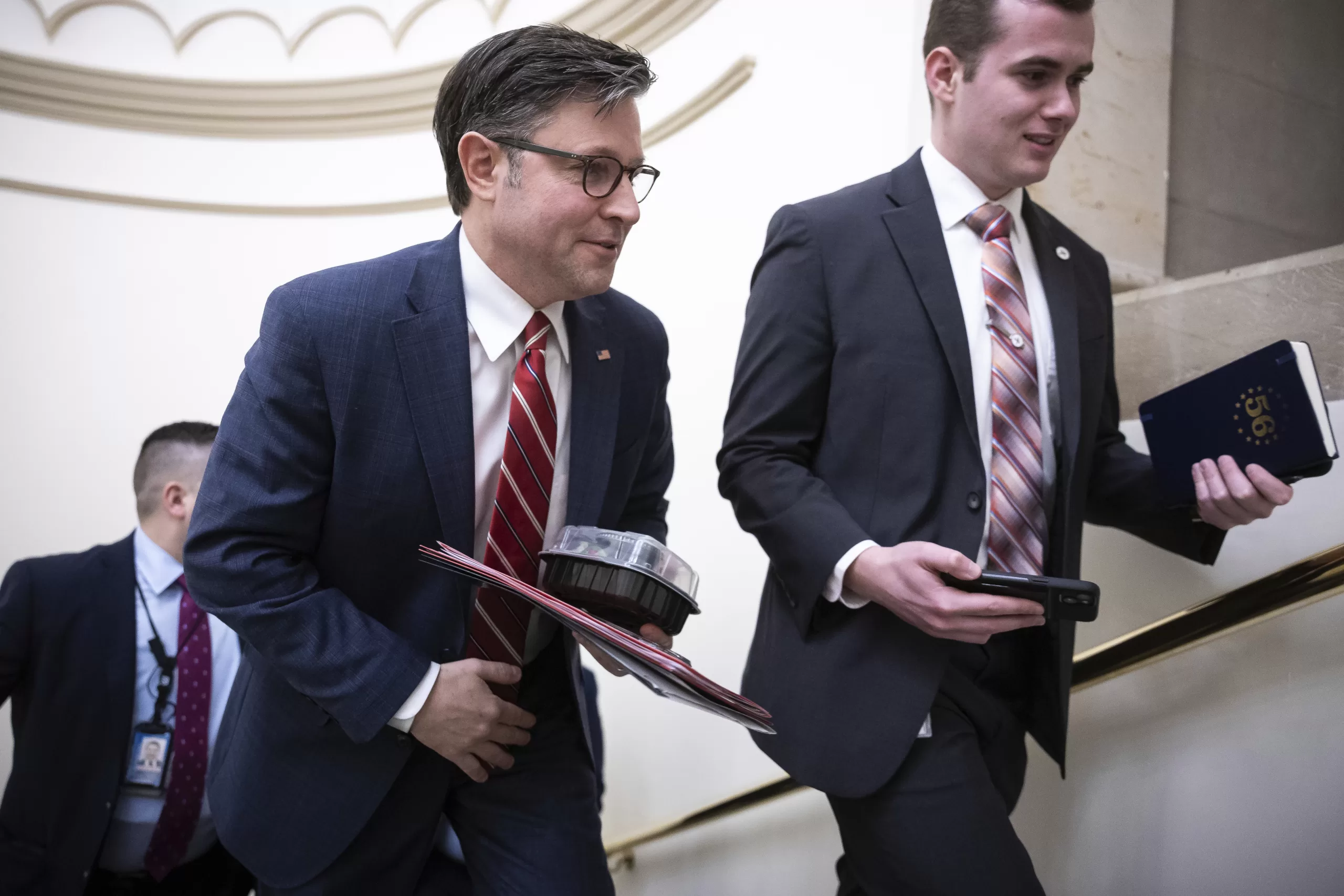
According to a source familiar with leadership’s thinking, Johnson still wants to hold listening sessions on the deal and hear from members at a meeting of the Republican conference on Tuesday.
But Johnson’s statements largely put to rest fears by supporters of the bill that House leadership would not let it come to the floor over objections from swing-district Republicans adamant about getting state and local tax relief for their constituents, as well as House Freedom Caucus members who have expressed concerns about undocumented immigrants getting larger child credit checks, though they are already eligible under some circumstances.
House leadership had put the text of the deal on this week’s legislative calendar as a bill that may be considered, although the timing of a vote is still unclear.
The tax deal — which also includes restoration of critical research and development deductions, disaster relief and tax breaks for companies operating in the U.S. and Taiwan — still has its naysayers, but a rare bipartisan vote with strong showings from both Democrats and Republicans is looking all the more likely.
“I have a lot of faith in Chairman Smith and a lot of faith in that committee. It’s got a lot of smart people on it and came out in a bipartisan vote 40-3,” House Rules Committee Chair Tom Cole (R-Okla.) told POLITICO on Monday, referring to a Jan. 19 mark-up of the bill by the House’s tax writing committee that saw unanimous Republican support.
“Everybody’s gonna do their due diligence and that’s appropriate. But I’d say again, it’s got a lot of momentum right now.”
New York, New Jersey and California Republicans representing districts with high state and local taxes have been perhaps the biggest obstacle to a tax package getting to the House floor. Several have said they would vote “no” on any tax package without a larger deduction for those taxes — a break known as SALT that is unpalatable to many GOP lawmakers in the conference — but Rep. Mike Garcia (R-Calif.), for one, acknowledged on Monday that he may be softening from that hard line.
“I don’t think the bill as written is a bad bill. I think the depreciation tables and the write-offs for research and development elements are all good,” Garcia said, noting that he is now “officially undecided” on the package.
Still, Garcia cautioned that not including any SALT relief would have ramifications for swing-district Republicans up for tough reelection campaigns in November: “I think it is a galactic political mistake for us to bring a bill that doesn’t have a pinch of SALT,” Garcia said.
Another issue that has rankled lawmakers on the far-right is that an expansion of the Child Tax Credit in the deal won by Democrats would result in larger checks for undocumented immigrants with U.S.-born children. That demographic has long been able to claim the credits, but amidst fierce partisan battles over border policy some conservatives insisted on Monday that any discussion around the CTC should involve limiting the tax breaks to parents who are U.S. citizens.
“The one that gives me pause is if illegals can get the tax credits,” said Rep. Tim Burchett (R-Tenn.). “If you’re waiting in the court system for six, eight years, it creates a huge loophole.”
“That would be the reason I vote against it, if I do vote against it,” Burchett said.
Rep. Matt Gaetz (R-Fla.) said: “I think we should be reticent at this point in time on expanding those type of programs when the eligibility is going to be vastly different following the millions of people the Biden administration let in.”
Despite most Democrats on the House’s tax-writing committee voting for the deal, progressives like top Democratic appropriator Rosa DeLauro (D-Conn.) may also vote against the bill because they believe the expansion of the CTC doesn’t go far enough.
Progressives want a restoration of the expanded family relief enacted during the pandemic, which slashed child poverty nearly in half. The expanded version of the credit proposed by Wyden and Smith would not go as far.
“The tax deal fails on equity,” said DeLauro in a Monday statement. “It delivers huge tax cuts for giant corporations while denying middle class families the economic security they had under the expanded, monthly Child Tax Credit.”
While moderate Republicans and Democrats may well be enough to shepherd the deal through the House by a two-thirds majority, the deal still has an uncertain fate in the Senate. Minority Leader Mitch McConnell (R-Ky.) has yet to weigh in on the package and Finance Committee ranking member Mike Crapo (R-Idaho) has said he would want changes to the deal, although he has declined to say what changes he is seeking.
Olivia Beavers contributed to this report.
